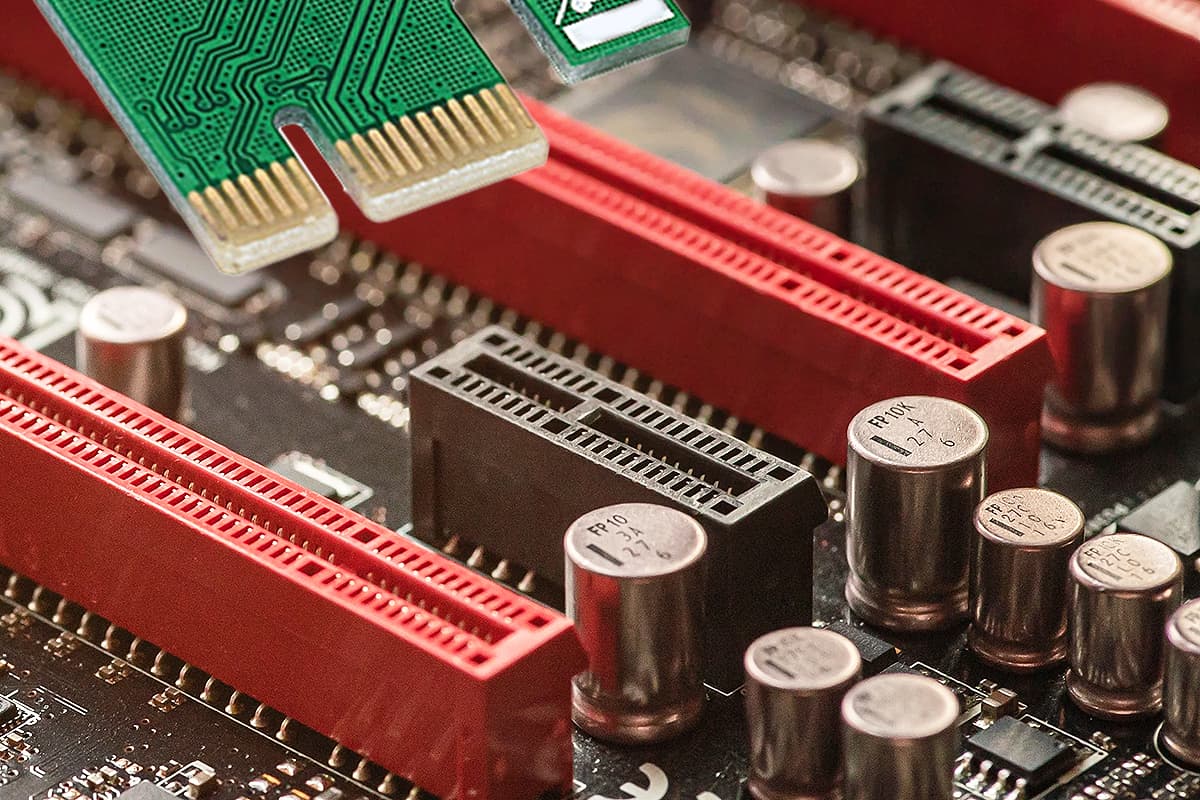Beyond Speed: Exploring the Versatility of PCI Connectors in Today's Devices

In today's rapidly advancing technological landscape, speed is a critical factor that drives innovation across various industries. However, when it comes to connectivity within devices, the focus is shifting towards more than just speed. This is where PCI connectors come into play. Below, we will explore the versatility of PCI connectors and how they have evolved beyond speed to become indispensable in today's devices.
The Power of PCI Connectors in Data Transfer
While speed remains an essential aspect of any connector, PCI connectors have moved beyond it to provide efficient and reliable data transfer capabilities. With advancements such as PCI Express (PCIe), these connectors now offer higher bandwidths, lower latency, and improved data integrity. The versatility of PCI connectors allows them to handle the demands of data-intensive tasks, such as video rendering, artificial intelligence, and high-performance computing.
From Desktops to Laptops: The Portability of PCI Express
PCI connectors were previously associated with desktop computers, acting as a primary means of expansion for added functionality. However, with the advent of Mini PCI Express and M.2 interfaces, the versatility of PCI connectors has extended to portable devices, including laptops, tablets, and even smartphones. These smaller form factors enable efficient connectivity for various components, such as wireless network cards, solid-state drives, and graphics processing units.
Enabling Scalability and Customization
Another significant advantage of PCI connectors lies in their ability to facilitate scalability and customization. With multiple PCI slots available on motherboards, users can easily add or upgrade components to enhance their device's capabilities. Whether it's adding a dedicated sound card for superior audio quality or a graphics card for gaming enthusiasts, the versatility of PCI connectors allows users to tailor their devices to meet their specific needs.
Bridging the Gap: PCI Connectors in Industrial and Embedded Systems
Beyond consumer devices, PCI connectors have found their way into industrial and embedded systems. These environments require robust and reliable connectivity solutions that can withstand harsh conditions and operate seamlessly in integrated systems. PCI connectors, both in standard and ruggedized forms, offer the versatility and long-term support needed in critical applications like manufacturing automation, robotics, and healthcare equipment. In conclusion, the versatility of PCI connectors in today's devices goes beyond speed. From facilitating data transfer and offering scalability to enabling customization and bridging gaps in industrial applications, PCI connectors have become an integral part of our technological ecosystem. As we pave the way for future advancements, the evolution of PCI connectors will continue to shape the way we connect and empower our devices.
The Power of PCI Connectors in Data Transfer
While speed remains an essential aspect of any connector, PCI connectors have moved beyond it to provide efficient and reliable data transfer capabilities. With advancements such as PCI Express (PCIe), these connectors now offer higher bandwidths, lower latency, and improved data integrity. The versatility of PCI connectors allows them to handle the demands of data-intensive tasks, such as video rendering, artificial intelligence, and high-performance computing.
From Desktops to Laptops: The Portability of PCI Express
PCI connectors were previously associated with desktop computers, acting as a primary means of expansion for added functionality. However, with the advent of Mini PCI Express and M.2 interfaces, the versatility of PCI connectors has extended to portable devices, including laptops, tablets, and even smartphones. These smaller form factors enable efficient connectivity for various components, such as wireless network cards, solid-state drives, and graphics processing units.
Enabling Scalability and Customization
Another significant advantage of PCI connectors lies in their ability to facilitate scalability and customization. With multiple PCI slots available on motherboards, users can easily add or upgrade components to enhance their device's capabilities. Whether it's adding a dedicated sound card for superior audio quality or a graphics card for gaming enthusiasts, the versatility of PCI connectors allows users to tailor their devices to meet their specific needs.
Bridging the Gap: PCI Connectors in Industrial and Embedded Systems
Beyond consumer devices, PCI connectors have found their way into industrial and embedded systems. These environments require robust and reliable connectivity solutions that can withstand harsh conditions and operate seamlessly in integrated systems. PCI connectors, both in standard and ruggedized forms, offer the versatility and long-term support needed in critical applications like manufacturing automation, robotics, and healthcare equipment. In conclusion, the versatility of PCI connectors in today's devices goes beyond speed. From facilitating data transfer and offering scalability to enabling customization and bridging gaps in industrial applications, PCI connectors have become an integral part of our technological ecosystem. As we pave the way for future advancements, the evolution of PCI connectors will continue to shape the way we connect and empower our devices.





